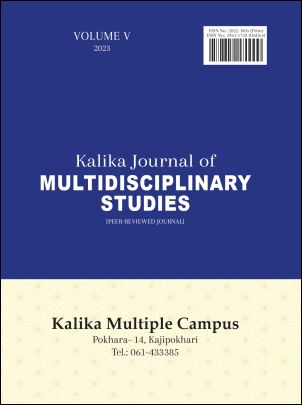People’s Experience Towards the Federal System in Gandaki Province, Nepal
DOI:
https://doi.org/10.3126/kjms.v5i1.60904Keywords:
Federalism, inclusive-democracy, integration, power-sharing, provinceAbstract
This study examines the debate over federal systems in the Gandaki region of Nepal. People’s experience towards the federal system in Gandaki Province is the key objective of this study. Within five years following the promulgation of constitution in 2015, general elections were held, and people received goods and services from three distinct governments. Through local, provincial, and federal governments, the public takes part in the process of public policy making. Since the system attempts to meet people’s wants, it has received positive response from everyone. Both primary and secondary data were used in this study. Primary data was gathered through interviews, and secondary data came from research papers, books, and other sources. The finding of this study shows that local government has been effective in delivering goods and services at the local level. In the public opinion, local governments have successfully justified their existence while provincial government has failed to do so. Also, this investigation finds that the federal government does not fully adhere to power sharing. As a result, the performance of provincial government is far below par. Furthermore, provincial governments lack the innovation needed to take over the federal system, which consists of both local and federal administrations.
Downloads
Downloads
Published
How to Cite
Issue
Section
License
All rights reserved. No part of this journal may be produced in any form or by any electronic or mechanical means, including infromation storage and retrieval system, without permission in writting from the publisher, except by a reviewer who may quote brief passage in review.




